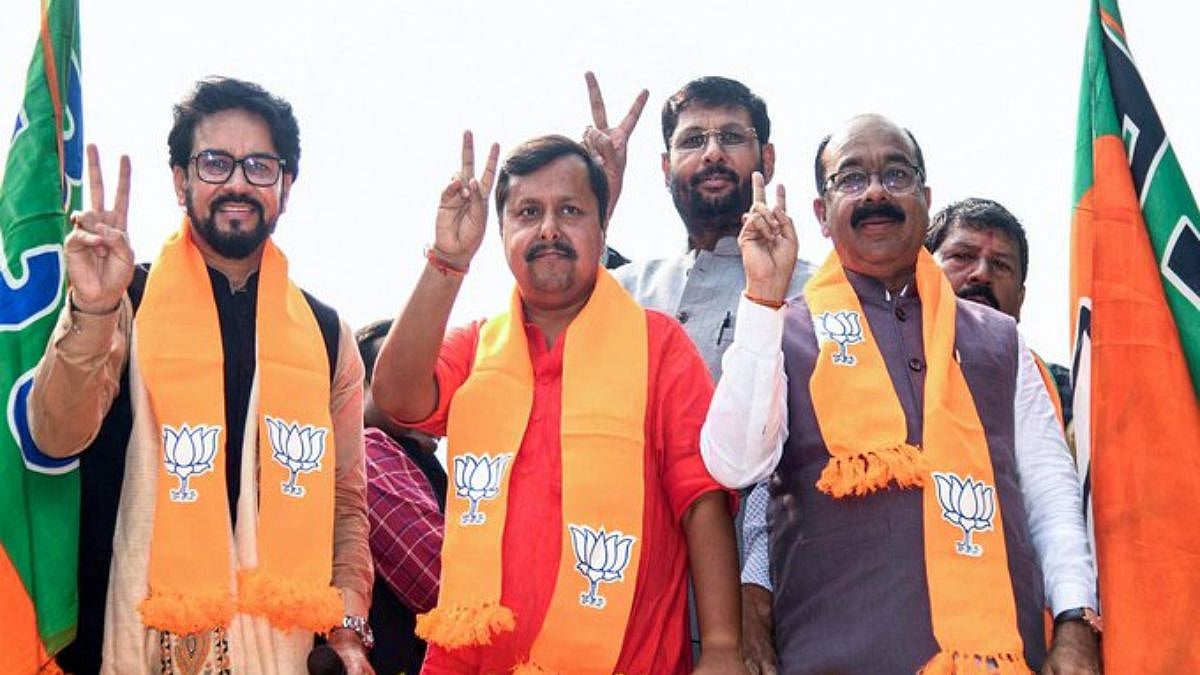Madhya Pradesh Home Minister Narottam Mishra on Tuesday announced that a “Love Jihad” Bill will soon be introduced in the state assembly which would make it a non-bailable and cognizable offence with up to five years rigorous imprisonment for "violators".
This comes on the heels of a similar announcement by BJP governments in Haryana, Uttar Pradesh and Karnataka that they too are contemplating legal provisions against “Love Jihad”. Many state governments are looking to criminalise what is essentially an interfaith marriage. The Chief Minister of Uttar Pradesh, Yogi Adityanath, even went so far as to warning that those engaging in ‘Love Jihad’ must be prepared to die. (https://indianexpress.com/article/india/yogi-adityanath-warning-love-jihad-6911901/)
For the uninitiated, any marriage between a Muslim man and a Hindu woman is termed "Love Jihad" by Hindutva group. They allege that Muslim men trap Hindu girls to fall in love and then force them to convert before marriage.
The concept has not been defined, either by courts or by the government. Earlier this year, Union Minister of State for Home G Kishan Reddy said the term 'Love Jihad' is not defined under the extant laws. "No such case of 'Love Jihad' has been reported by any of the central agencies," he said in reply to a written question in Parliament. (https://scroll.in/latest/952199/there-is-no-love-jihad-under-current-laws-home-ministry-tells-lok-sabha)
“Love Jihad”, despite constant dog-whistle by the right-wing Hindutva groups, has no legal or constitutional basis. The right to marry a person of one’s choice is guaranteed under Article 21 of the Constitution. On the other hand, freedom of conscience, the practice and propagation of a religion of one’s choice, including not following any religion, are guaranteed under Article 25.
Furthermore, the Special Marriage Act, 1954 also provides validity to marriage for the people of India and all Indian nationals in foreign countries, irrespective of the religion or faith followed by either party. The act provides for a marriage officer to vet identities and ensure consent in matrimonial alliances.
The demand for a law to keep a check on inter-faith marriages gained traction soon after the Allahabad High Court passed a controversial order in September stating that voluntary conversion of religion by an adult for the purpose of marriage is not valid. Ironically, the order was passed while hearing a plea of a Muslim woman who had converted to Hinduism for the sake of marriage to her Hindu partner. (https://www.freepressjournal.in/india/allahabad-hc-says-adult-woman-free-to-stay-with-whomsoever-she-wants)
While several states have been quick to take advantage of the High Court order to push the narrative of “Love Jihad”, the order itself has several legal loopholes. (https://www.thequint.com/voices/opinion/allahabad-hc-religious-conversion-for-marriage-protection-of-couples-wrong-application-of-sc-lily-thomas-judgment)
The narrative in this case is being framed as attempts to protect women from exploitation, but what it brings to the plate is how the court and the country view the question of religious conversion.
The right to conscience is listed in Article 25 of the Constitution along with the right to profess, practice and propagate religion. Given this, how does the state then impose restrictions on religious conversions, which in its very basic essence is an exercise of one’s conscience?
What the Allahabad High Court order in September has done is that it has perhaps provided ammunition to not only communal groups but also several state governments to disrupt the exercise of individual choice in personal decisions.
The proposals for legislation to stop “Love Jihad” is therefore not motivated by the idea of the so-called “protection of women”, but to stop conversion and essentially inter-religious unions, which has long been an eyesore for right-wing Hindutva groups.
Furthermore, a law of such manner, if it were to be passed, gives the state the power to be constant vigilantes in the personal lives of the citizens, thus blurring the basic boundary between the public and the personal.
And since the legislation is likely to make interfaith marriage a cognizable offence, it leaves the police with vast power to misuse its authority and harass any citizen without evidence or warrant. Looking at a larger perspective, such a law would only lead to harassment of inter-religious couples and also give a sort of validity to the possible violence that might occur as a result of the same.
On the part of the government, contemplating laws to regulate matrimonial relationships between consenting adults is not only against the Constitution but also strikes hard on the notion of individuality and basic freedom.





